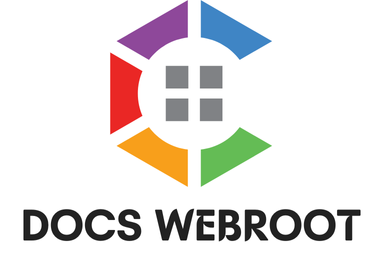The rapidly evolving landscape of healthcare has seen a transformative impact due to the integration of artificial intelligence (AI). As we move further into 2024, AI-driven health apps are showing remarkable potential to enhance patient monitoring across the UK. This article delves into how these innovative technologies are reshaping patient care, improving patient outcomes, and providing new avenues for healthcare professionals to deliver medical services more efficiently.
Revolutionizing Healthcare Through AI
AI-driven health apps are poised to revolutionize healthcare systems by leveraging advanced technologies such as machine learning and deep learning. These sophisticated tools can analyze vast amounts of patient data in real time, offering critical insights that were previously unattainable. From diagnosis and treatment to monitoring and decision-making, the applications of AI in healthcare are numerous and diverse.
Additional reading : What Are the Latest AI Trends in Enhancing UK Maritime Logistics?
AI-driven health apps facilitate remote patient monitoring, enabling healthcare providers to track a patient’s health status without the need for frequent in-person visits. This capability is crucial as it allows for continuous monitoring, which can lead to early detection of potential health issues and timely interventions.
Moreover, these health apps are equipped with predictive analytics, which can help anticipate and prevent disease outbreaks. This proactive approach is essential in enhancing patient care and reducing the burden on healthcare systems.
This might interest you : How Can AI Improve Patient Care in UK Hospitals?
Improving Patient Outcomes with Personalization
One of the most significant advantages of AI-driven health apps is their ability to provide personalized care. By analyzing patient data, these apps can tailor treatment plans to meet the unique needs of each individual. This level of personalization ensures that patients receive the most effective treatments, leading to better patient outcomes.
For instance, AI can help manage chronic conditions by providing tailored treatment plans based on a patient’s medical history and current health status. By doing so, healthcare professionals can offer more precise and effective treatments, reducing the risk of complications and improving the overall quality of life for patients.
Additionally, AI-driven health apps can assist in monitoring mental health. These apps can track mood patterns, identify triggers, and offer coping strategies, ensuring that patients receive the support they need. This personalized approach is particularly beneficial for individuals with mental health conditions, as it provides them with tools to manage their condition effectively.
Enhancing Real-Time Decision Making
In the fast-paced world of healthcare, timely and accurate decision-making is critical. AI-driven health apps excel in this area by providing real-time data analysis and insights. This capability allows healthcare providers to make informed decisions quickly, which is vital in emergency situations.
For example, AI can analyze clinical data from various sources to predict patient deterioration and alert healthcare providers in real time. This proactive approach can significantly enhance patient safety and improve outcomes by enabling timely interventions.
Moreover, AI-driven health apps can streamline the diagnosis treatment process. By analyzing medical records and symptoms, these apps can suggest potential diagnoses and treatment options, saving valuable time for healthcare professionals. This efficiency is particularly beneficial in busy healthcare settings, where quick and accurate decision-making is crucial.
The Role of Digital Health in Patient Monitoring
Digital health technologies, powered by AI, are playing an increasingly important role in patient monitoring. These technologies enable continuous monitoring of patients’ health status, providing valuable data that can be used to improve patient care.
Wearable devices, for example, can monitor vital signs such as heart rate, blood pressure, and glucose levels in real time. This data can be transmitted to healthcare providers, allowing them to monitor patients remotely and intervene when necessary. This continuous monitoring is particularly beneficial for patients with chronic conditions, as it enables early detection of potential issues and timely interventions.
Furthermore, digital health technologies can enhance patient engagement by providing them with tools to manage their health proactively. Health apps can offer personalized health tips, reminders for medication, and access to medical information, empowering patients to take an active role in their health.
The Future of AI-Driven Health Apps in the UK
The future of AI-driven health apps in the UK looks promising, with numerous potential applications that could revolutionize healthcare. As these technologies continue to evolve, they will likely play an even more significant role in enhancing patient care and improving health outcomes.
One potential application is in the field of predictive analytics. By analyzing patient data from various sources, AI-driven health apps can predict potential health issues and suggest preventive measures. This proactive approach can help reduce the incidence of diseases and improve overall health outcomes.
Another exciting application is in the realm of remote patient monitoring. AI-driven health apps can enable continuous monitoring of patients’ health status, providing healthcare providers with valuable data that can be used to improve patient care. This capability is particularly beneficial for patients with chronic conditions, as it enables early detection of potential issues and timely interventions.
Moreover, AI-driven health apps can enhance clinical decision-making by providing real-time data analysis and insights. This capability is vital in a fast-paced healthcare environment, where timely and accurate decision-making is crucial.
As we advance into 2024, AI-driven health apps are demonstrating a profound impact on patient monitoring in the UK. By leveraging the power of artificial intelligence, these apps are revolutionizing healthcare systems, enhancing patient care, and improving patient outcomes. From personalized treatment plans to real-time decision-making and remote patient monitoring, the potential applications of AI in healthcare are vast and promising.
The integration of AI in healthcare is not just about adopting new technologies; it’s about transforming the way we deliver care. The future of healthcare in the UK looks brighter with AI-driven health apps at the forefront, offering innovative solutions that can significantly enhance patient care and improve health outcomes. As these technologies continue to evolve, they will undoubtedly play an even more significant role in shaping the future of healthcare, ensuring that patients receive the best possible care in a timely and efficient manner.











